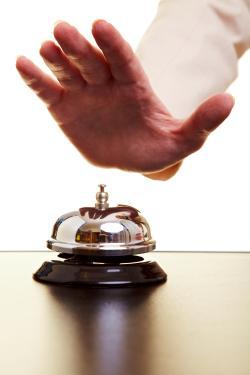Reading Alan Siegel’s story on quiz bowl, I was thrilled to recognize so many facets of my own college quiz bowl years: the desk-slapping of frustrated players, the never-ending crusade to balance in-depth knowledge and rote memorization, and even Yale team member Kevin Koai, a friend of mine from when we were both on the Stanford team as undergraduates. But there was one key part of my experience Siegel didn’t cover: what it was like to be a female quiz bowler in an overwhelmingly male setting.
As a girl, you’re never just answering trivia questions about canonical literature and scientific principles. You always have something to prove—when men mess up, it’s perceived as an individual failure, but when women mess up, it reflects badly on their entire gender. I got a 5—the highest possible score—on the Calculus BC AP test in high school, but when a math question came up in quiz bowl, I wouldn’t even listen to it for fear that I’d answer it wrong and reinforce stereotypes about female innumeracy.
Once, when I got a middling individual score at a competition, a teammate tried to encourage me by telling me I’d done well “for a girl.” He wasn’t being condescending; in fact, he was being accurate. I had gotten a higher score than most other female players, though it was unimpressive overall. Why didn’t more girls perform better that weekend? And why are female players so underrepresented on greatest-players lists like the one Siegel linked?
Well, that’s another problem with being a lady quiz bowler: societal anxiety surrounding gender and intelligence. Girls have hewn out the cultural space to be smart—as has been amply documented and sometimes fretted about, they’re now outperforming boys academically—but they’re not yet allowed to brag about it. It’s not uncommon to see girls (and women) pretending to know less than they do in order to, say, smooth over a disagreement about what actor was in which movie. If you’ve been raised not to show off how much you know, you might find it uncomfortable to play a game whose entire ridiculous point is to show off how much you know.
Plus, like any other male-dominated sphere, quiz bowl can occasionally get downright hostile toward women. When the Rape of the Sabine Women came up in a question one practice, a guy argued that it shouldn’t be called a rape, because the Romans married the women they abducted, and it doesn’t really count as rape if a husband does it to a wife.
“Even when your husband kidnapped you and married you against your will?” I asked.
“Look, women were property back then,” he said. “Your postmodern ideas about humanity don’t apply.”
Clearly, intelligent and well-meaning as they may be, men in predominantly male environments have fewer opportunities to learn about and become sensitive to, uh, “postmodern ideas of humanity.” And that makes it a tricky thing to be a woman in quiz bowl.
I’d be lying, though, if I said that being the only girl wasn’t also the easiest part of quiz bowl. You get a lot of attention, because all you have to do to be unique and memorable is show up. The flipside of the idea that girls can’t be good at trivia is that when you are, you’re considered special, maybe a little cooler than other girls. For me—and for many of the nerdy sort of girls quiz bowl attracts—this was a revelation, the first time being a socially maladroit know-it-all turned out well. Still, the lack of female energy leaves something to be desired, which is why, you’re more likely to find me at pub trivia these days, a land where free booze flows for correct answers and there are usually plenty of women around.
